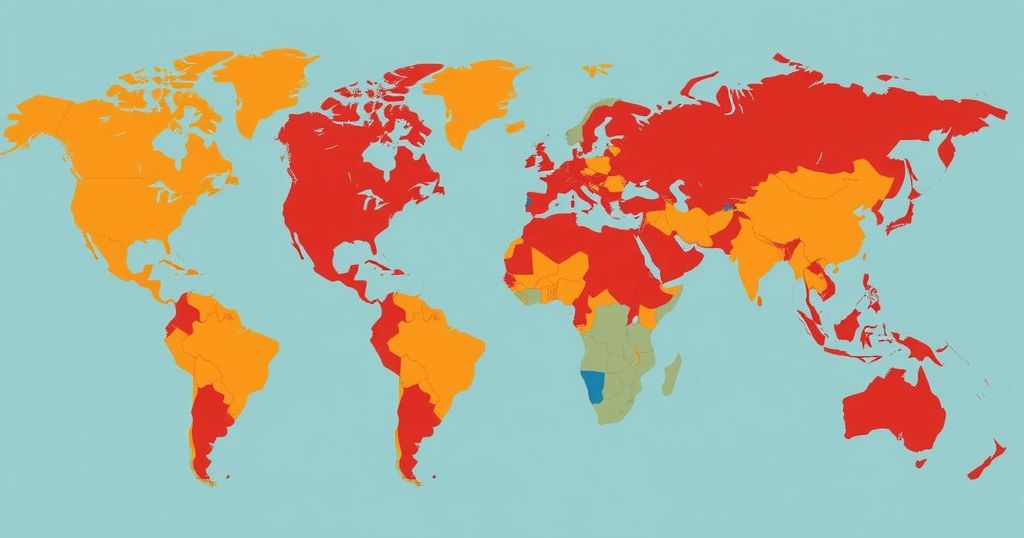The Trump administration is set to impose new U.S. entry restrictions on several countries, including Afghanistan, Pakistan, and Venezuela. This follows an Executive Order mandating federal agencies to review security screening processes. Advocacy groups warn of severe impacts on refugees, particularly from Afghanistan, while civil rights organizations criticize the necessity of the restrictions given existing vetting mechanisms.
The Trump administration is reportedly preparing to implement new U.S. entry restrictions targeting several nations, including Afghanistan, Pakistan, Iran, Libya, Somalia, Sudan, Syria, Yemen, Chad, North Korea, and Venezuela. This decision follows an Executive Order from January 20, instructing federal agencies to evaluate these countries based on their security screening and vetting capabilities. Officials are considering the suspension of admissions from these nations, with an official announcement anticipated soon.
During President Trump’s first term, several travel bans were enacted beginning in 2017, initially focusing on particular Muslim-majority countries, leading to criticism and allegations of a “Muslim Ban.” Despite facing extensive legal challenges, the U.S. Supreme Court ultimately upheld the third iteration of the travel ban in 2018, affirming the President’s authority concerning national security measures.
The specific countries potentially facing restrictions remain unconfirmed; however, Afghanistan and Pakistan are under review. Advocacy groups such as the International Refugee Admissions Project (IRAP) have raised concerns that these restrictions could severely impact Afghan refugees, particularly those holding Special Immigrant Visas (SIV) who are fleeing Taliban oppression.
Security concerns surrounding Pakistan, particularly with its vetting processes, have contributed to its scrutiny. Inclusion in the travel ban could significantly affect countless Pakistani nationals seeking U.S. visas. Civil rights organizations, including the American Civil Liberties Union (ACLU), have swiftly condemned the proposal, arguing it would be detrimental and unnecessary given existing vetting rigors employed by the State Department and the Department of Homeland Security (DHS).
Under the Executive Order, the State Department and DHS are required to finalize the list of countries facing possible travel restrictions within 60 days. As this deadline approaches, an official announcement regarding the affected nations is expected shortly. Updates can be monitored through the official websites of the U.S. Department of State and the Department of Homeland Security.
The impending U.S. entry restrictions under the Trump administration could impact several countries, with potential implications for Afghan refugees and Pakistani nationals. The ongoing scrutiny regarding national security and vetting procedures underscores the complex interplay between immigration policy and human rights concerns. As the deadline for the finalized list approaches, further developments are anticipated, necessitating close attention to forthcoming announcements.
Original Source: www.travelandtourworld.com




